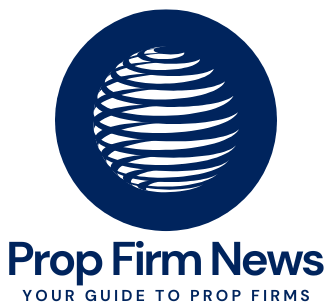Proprietary trading firms offer traders access to significant capital, but earning that privilege often requires passing a rigorous evaluation process. These challenges or assessments are designed to test a trader’s skill, discipline, and risk management abilities. In this comprehensive blog, we’ll explore how evaluation processes work, what traders need to succeed, and tips for passing them.
What Are Prop Firm Evaluation Processes?
Evaluation processes are tests set by prop firms to identify skilled traders capable of managing the firm’s capital profitably. These assessments typically involve trading a demo account under specific rules, such as profit targets, loss limits, and time constraints. Successful traders are granted funded accounts, allowing them to trade real capital and share profits with the firm.
Popular prop firms like FTMO, The Funded Trader, and SurgeTrader use evaluation challenges to filter candidates. While the specifics vary, the goal is universal: to ensure traders can generate consistent profits while adhering to risk management protocols.
Common Types of Evaluation Processes
1. Two-Phase Challenges
The most common evaluation model, two-phase challenges require traders to meet specific targets in two stages. For example:
- FTMO Challenge: Traders must achieve a 10% profit target in Phase 1 and 5% in Phase 2, with daily and maximum drawdown limits. Learn about FTMO’s challenge.
- The Funded Trader Standard Challenge: Similar structure with flexible trading rules. Explore here.
Key Features:
- Profit targets (e.g., 8–10% in Phase 1, 5% in Phase 2).
- Maximum drawdown (e.g., 10–12% overall, 5% daily).
- Time limits (e.g., 30 days for Phase 1, 60 days for Phase 2).
2. One-Step Challenges
Some firms offer single-step evaluations for traders seeking a faster path to funding. SurgeTrader, for instance, requires a 10% profit target with a 5% daily drawdown limit in one phase. Check out SurgeTrader’s model.
Key Features:
- Simplified process with fewer stages.
- Higher profit targets in a single phase.
- Often more expensive due to the streamlined process.
3. Instant Funding Evaluations
Certain firms, like My Forex Funds, offer instant funding options where traders bypass traditional challenges by paying higher fees. However, these accounts may have stricter profit splits or trading rules. Learn more.
Key Features:
- No evaluation period.
- Immediate access to capital.
- Higher costs or lower profit shares.
Key Metrics in Evaluation Processes
Prop firm evaluations typically assess the following:
- Profit Target: Achieving a specific percentage return (e.g., 10% of the account balance).
- Maximum Drawdown: Total allowable loss (e.g., 10–12% of the initial balance).
- Daily Loss Limit: Maximum loss allowed in a single day (e.g., 5%).
- Trading Days: Minimum number of active trading days (e.g., 10 days).
- Consistency Rules: Some firms require consistent performance, avoiding large single-day gains.
For a deeper understanding of trading metrics, visit Investopedia’s trading glossary.
Tips for Passing Prop Firm Evaluations
- Develop a Trading Plan: Create a strategy that aligns with the firm’s rules, focusing on high-probability setups. Test your plan in a demo environment first.
- Master Risk Management: Stick to small position sizes and avoid over-leveraging to stay within drawdown limits.
- Practice Discipline: Avoid emotional trading or chasing losses, as consistency is key.
- Simulate Real Conditions: Practice on a demo account with the same rules as the evaluation to build confidence.
- Track Performance: Use journaling tools like MyFXBook to monitor trades and identify areas for improvement. Visit MyFXBook.
Challenges of Evaluation Processes
- Cost: Evaluation fees can range from $100 to $1,000, depending on the account size.
- Pressure: Strict rules and time limits can create stress, impacting performance.
- Learning Curve: New traders may need multiple attempts to pass, increasing costs.
Top Prop Firms with Evaluation Programs
- FTMO: Two-phase challenge with clear rules and high profit splits. Visit FTMO.
- The Funded Trader: Flexible challenges with multiple account types. Explore here.
- SurgeTrader: One-step evaluation for faster funding. Learn more.
- E8 Funding: Offers customizable evaluation plans. Check it out.
Conclusion
Prop firm evaluation processes are the gateway to accessing funded accounts and trading with professional capital. By understanding the structure of these challenges, preparing thoroughly, and adhering to risk management principles, traders can increase their chances of success. Whether you choose a two-phase challenge, a one-step evaluation, or an instant funding model, the key is to trade consistently and strategically. Ready to take on a prop firm challenge? Research reputable firms and start practicing today!
